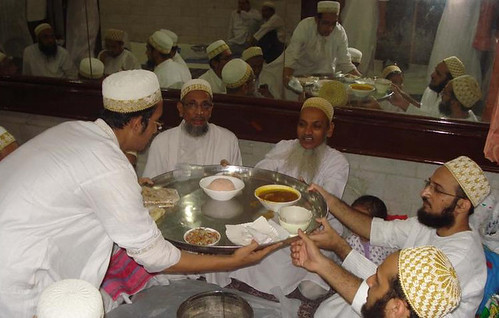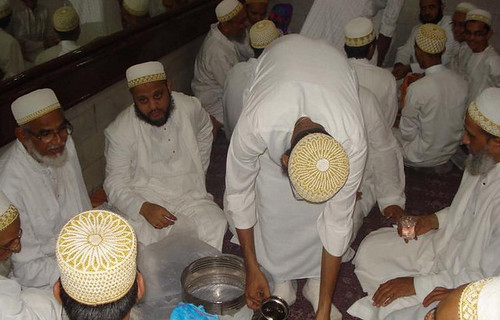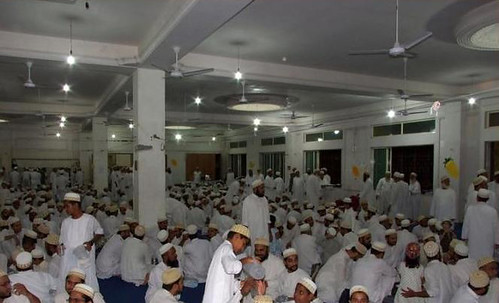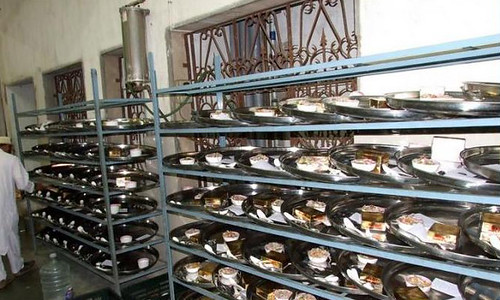By Danish Reyaz,
Mumbai: Do you have any idea about how Dawoodi Bohras celebrate the holy month of Ramadan? Perhaps, many of us would say, No, because we are not much aware about this community.
If taken on face value, it is hard not to stereotype the Dawoodi Bohra community as ‘just average Muslims’ – conservative, inward looking and, who knows, even fanatical. After all, isn’t that the most common, albeit erroneous picture that is painted to depict an average Muslim? But on a closer look you will realise that this community has learnt the fine art of maintaining a perfect balance between devoutly following the Islamic teachings and keeping pace with the ‘modern’ world.

Quresh Ragib, media in charge, Badri Mahal says “we are celebrating our Ramadan as usual. Our prayer will begin with tahajjud, before the dawn, Dua and Tilawat. And after Sehri we pray Fajr.” Mid day we offer Zohrana namaz where we club Zohar and Asr Salah at one pm. After every namaz we recite various duas, and after Magrib salah we break our fast and then pray Isha. After Isha we take our meals.”
According to Quresh Ragib “our spiritual leader has ordered that in this holy month we protect our health and avoid oily foods, so we are doing accordingly.” Our Iftar is organized by local jamat khana, where all community members are participating. Our dinner system is different. We have managed groups — in every group there are eight people who jointly eat in one tray,” he further added.

The Dawoodi Bohras are an advanced lot in every sense of the word, be it social, educational, political, or financial. They have developed their business economy and a separate identity not only in Mumbai but across the world. And there are those who will vouch for this: you will not find a single beggar from this community anywhere in India. And what, you may ask, is the secret behind their development and prosperity? Education, which they consider extremely important, for both men and women, and their love and quest for knowledge which disallows them to keep looking inwards and fall out of pace with the rest of the world.
“Knowledge is our legacy. Hence, it is our duty to protect this legacy for the betterment of our community. The world is changing fast and, to live a respectable life, it is necessary for us to be aware of what’s going on around us; it is our duty to adapt to modern technology and industrial development,” says Syedna Burhanuddin.

The Bohras of India belong to a Shiite sect of Gujarati-speaking Muslims. During the reign of the 11th Fatimid Caliph in Egypt, this group made a lasting impact on the people of Egypt and Yemen. It should be worth noting that the earliest Caliphs were ‘Companions of the Prophet’ and were called Khulfa-e-Rashideen (rightly guided Caliphs). Consequently, the Caliphate shifted to Damascus (Umayyads), then to Baghdad (Abbasids), Egypt (Fatmids), and finally to Turkey under the Ottomans before the Caliphate was abolished by Kemal Ataturk in 1924. After coming to India, the Dawoodi Bohras converted Gujarati Vaishyas and Brahmins to Islam.

Dawoodi Bohra and Ismaili sects of Muslims today inhabit around 25 countries; their population in India is about one million. Asghar Ali Engineer, a prominent Islamic scholar and researcher who himself belongs to Bohra community says, “Over 1.3 lakh Dawoodi Bohras live in Mumbai while there are over one million of them living all over the world. There is a famous shrine of Dawoodi Bohras at Mohammad Ali Road in Mumbai where devotees come to pay homage. Also found in large numbers in Mumbai, Ismailis have an old Jamaat Khana at Kharak in Dongri where they perform their rituals.”

